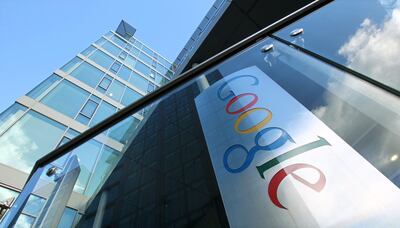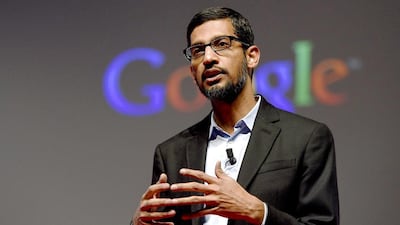Google has pledged to run all of its campuses and data centres on carbon-free energy by 2030.
This transformation will create more than 20,000 new jobs in clean energy and associated industries over the next five years, the company said on Monday.
“We are the first major company to make a commitment to operate on carbon-free energy 24 hours a day, seven days a week and 365 days a year,” the company’s chief executive Sundar Pichai said.
“This is far more challenging than the traditional approach of matching energy usage with renewable energy, but we are working to get this done by 2030,” he added.
The Alphabet-owned company was one of the first major firms to become carbon-neutral in 2007. This has involved balancing its energy use through incorporating more renewable energy sources and reducing its emissions. Its latest pledge builds on this by attempting to run its entire business on carbon-free energy.
“This is our biggest sustainability moonshot yet, with enormous practical and technical complexity,” said Mr Pichai.
Until recently, powering a business around the clock using only renewable energy was difficult, as wind and solar generation are intermittent and battery storage capacity was limited.
“But thanks to trends in technology and with the right government policies … this will soon be within reach,” Mr Pichai said.
Google is investing in new technologies, such as pairing wind and solar power sources together and increasing battery storage to help achieve this. It is also working on ways to apply artificial intelligence to optimise electricity demand and forecasting.
“Our work can accelerate the availability of clean energy in communities worldwide,” Mr Pichai said.
Google is investing in technologies to help its partners make sustainable choices. For example, it is investing in its key regions to generate 5 gigawatts of new, carbon-free energy that will help 500 cities to reduce emissions and provide clean power to up to 1 billion people.
“We will enable 5GW of new carbon-free energy by 2030 through investment. We expect this to spur more than $5 billion (Dh18.4bn) in clean energy investments and avoid the amount of emissions equal to taking more than 1 million cars off the road each year,” Mr Pichai added.
Google is also working with a network of environmental organisations, such as Crowther Lab, on a science-based approach to reforestation and restoration.
It also unveiled an $11.86 million Google.org Impact Challenge in Europe on Monday to support promising ideas and projects to support sustainability, selected by independent experts.
Google’s initiatives build on the World Economic Forum’s Net Zero Challenge report issued in January. The Forum said that corporations can accelerate individual action and commit to meaningful short- and long-term reductions.
“Now more than ever, it is important for companies to do their part. This latest example from Google demonstrates their commitment to climate action,” said Dominic Waughray, WEF’s managing director.
“Initiatives that go beyond business as usual will ensure the future is inclusive and sustainable,” he added.
The International Energy Agency’s analysis shows that reaching international climate and sustainable energy goals will require a major scaling up of clean energy technologies.

“Announcements like Google’s show the kind of ambition that is needed from the world’s largest corporations … supporting my growing optimism that we can significantly accelerate clean energy transitions in the coming years,” the IEA’s executive director Fatih Birol said.


